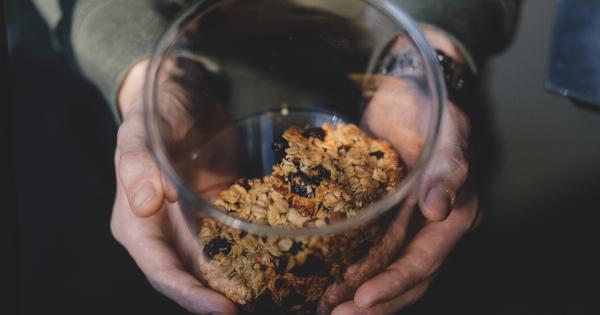Impulsivity is defined as the tendency to act without forethought and to have difficulty in controlling one’s behavior. Individuals with impulsive behaviors often find themselves engaging in activities that may lead to negative consequences.
One such area in which impulsivity can have a significant impact is in our relationship with food.
The Role of Impulsivity in Food Dependence
Impulsive behavior is often seen as a reaction to environmental stimuli. In the case of food, it can come in many forms, such as overeating, binge eating, emotional eating, and sugar cravings.
Those who struggle with impulsive eating often experience a lack of control, and the drive to satisfy their cravings can be overwhelming. As a result, they may find themselves eating more than what their body needs, leading to long-term health consequences such as obesity, hypertension, and diabetes.
Research has shown that individuals with a high degree of impulsivity are more likely to engage in behaviors that have an addictive-like quality, including food dependency.
When someone is impulsive, their actions tend to be more driven by immediate rewards rather than long-term consequences. This makes it easier to justify indulging in unhealthy foods, as the pleasure derived from it outweighs the potential negative consequences.
The Connection Between Emotional Eating and Impulsivity
Emotional eating is a common response to stress, anxiety, and negative emotions. Food is often used as a source of comfort, and those who struggle with emotional eating may find themselves turning to food when they experience emotional distress.
Emotional eating and impulsivity are closely related, and those who struggle with impulsive behavior may be more prone to emotional eating.
Individuals who are impulsive may have difficulty regulating their emotions, and may look to food as a means of coping with negative feelings.
Food provides a quick and easy distraction from emotional distress, and can provide a temporary sense of relief. However, this coping mechanism can lead to a cycle of emotional eating that is difficult to break.
Breaking the Cycle of Impulsive Eating
The key to overcoming impulsive eating is to develop a better understanding of why it occurs. For many people, impulsive eating is a habitual behavior that is used as a means of coping with stress and negative emotions.
It is important to identify the triggers that lead to impulsive eating and develop strategies for managing them.
To break the cycle of impulsive eating, it is important to develop healthy coping mechanisms that can replace the use of food as a source of comfort.
Engaging in activities such as exercise, meditation, and mindfulness can help to reduce stress and anxiety, and provide an effective outlet for managing negative emotions.
Practicing mindful eating is another effective strategy for overcoming impulsive eating. Mindful eating involves paying close attention to the experience of eating, such as the taste, texture, and smell of food.
This can help to reduce the tendency to overeat, as individuals become more aware of their hunger and satiety cues.
Conclusion
Impulsivity is a significant factor in our relationship with food. Those who struggle with impulsive eating can find themselves caught in a cycle of addiction-like behavior that is difficult to break.
By developing a better understanding of why impulsive eating occurs and implementing healthy coping strategies, individuals can overcome their dependence on unhealthy foods and enjoy a happier, healthier life.






























